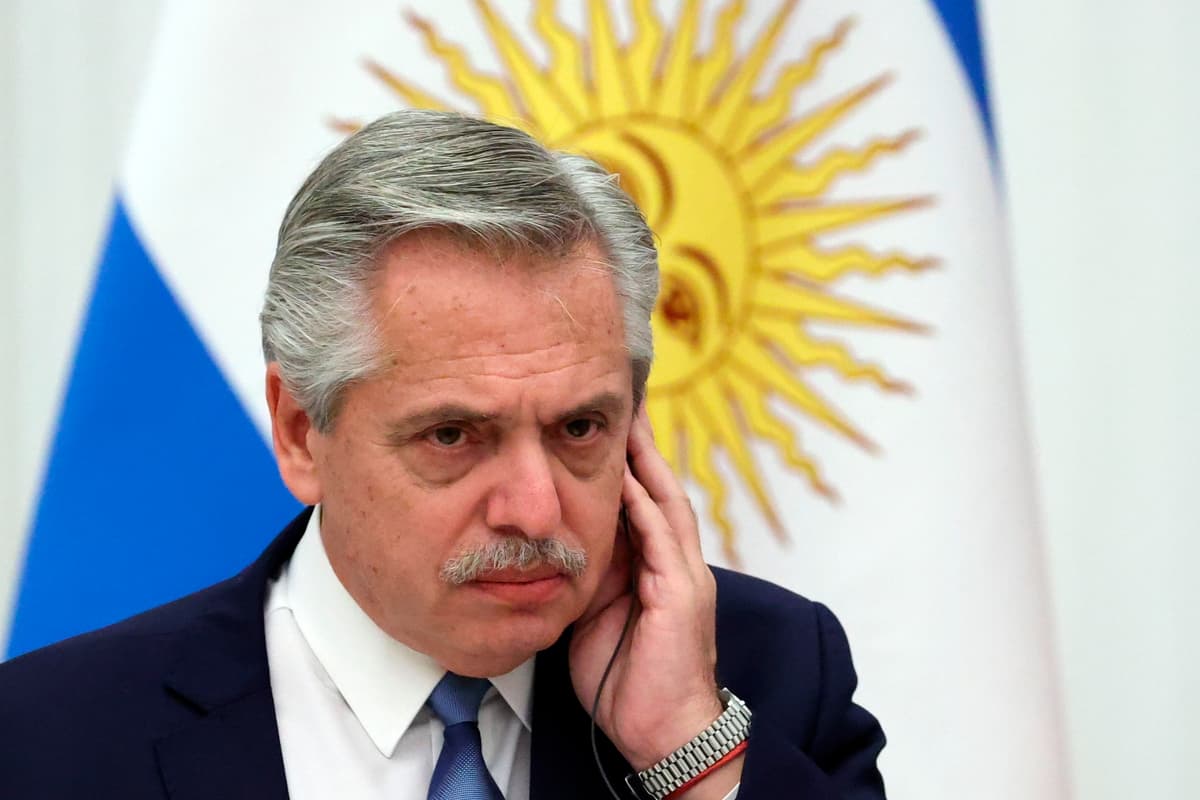A Doorway for Putin to Latin America
The ruling Peronist party has been contorting itself to square its long deference to the Russian leader with international outrage at his latest brutality.

BUENOS AIRES — The war in Ukraine has prompted extraordinary reactions throughout the world, but few as odd as Argentina’s. The ruling Peronist party has been contorting itself to square its long deference to President Putin with international outrage at his latest brutality.
On March 1, the vice president of Argentina, Cristina Fernandez de Kirchner, was heard on an open mike instructing the Argentinian president, Alberto Fernández: “Now ask for the minute of silence.”
Only a moment earlier, the former president quashed an opposition representative’s call for a minute of silence “repudiating the invasion.”
This allowed Mr. Fernández to read a prepared text that at least acknowledged a “military invasion,” after days of government euphemisms expressing “concern for the current situation in Ukraine.”
Yet Mr. Fernández’s text paired two sets of “losses of human life”: those lost to the Covid pandemic and those to the new war. Remarkably, he made the former “the context” for the latter. The Covid crisis, he explained, stemmed from the global inequality born of profit-driven capitalism.
Tacitly, then, he pointed to an idealized antidote to Western greed: the Sputnik vaccines Russia provided to Argentina as Pfizer and AstraZeneca contracts stalled, and as wealthy nations supposedly hoarded supplies.
This reminder of rescue by Russia could deflect, or at least relativize, any condemnation of the Russian leader Mr. Fernández had courted in Moscow only three weeks earlier.
On that occasion he had offered to make Argentina Mr. Putin’s “doorway to Latin America,” even as he declared his wish to reduce Argentine dependence on America and the International Monetary Fund, as debt repayments from its last bailout of the country loomed.
When the minute of silence came, the vice president could be seen playing with her hair and broadly smiling; the president, meanwhile, was blowing a kiss to some unidentified person — or maybe to no one in particular.
Two days earlier, in a long-delayed tweet about the Ukraine crisis, Ms. Kirchner evoked a third group of the dead: the slain fighters in Argentina’s Malvinas War against British colonialism.
In fact, in the heading to her series of tweets on Ukraine, Ms. Kirchner coupled “40 years ago” with “eight years ago,” referring to the Malvinas/Falkland and the Crimea conflicts, respectively.
In the 1982 conflict off the Argentine coast, Britain went to war after Argentina’s military junta seized the long-disputed islands. Ms. Kirchner has long voiced a grievance with America’s apparent breach of the Monroe Doctrine in giving covert military aid in the 10-week battle to Britain, its ally and NATO partner.
Her argument chimes with the current view that it is America/NATO’s perceived overreach that has provoked the Ukraine invasion, and this resentment over an American double standard has probably been the major force in the strong bond between Ms. Kirchner and Mr. Putin forged since at least 2014.
In a March 2013 referendum, Falkland/Malvinas islanders voted almost unanimously to remain British territory, a motion America defended in the United Nations.
Yet a year later, after 97 percent of Crimeans voted in a comparable referendum to join the Russian Federation, America and its allies in the UN Security Council opposed the vote in support of Ukraine’s territorial integrity.
In 2014, during Ms. Kirchner’s own presidency, Argentina was a temporary Security Council member and strategically sided with Ukraine to uphold the principle of territorial integrity, a “pillar of international law,” as she called it.
Argentina later abstained from the General Assembly’s nonbinding resolution against Russian annexation of Crimea.
In gratitude, Mr. Putin, during his Latin America tour months later, came to Buenos Aires with agreements for nuclear and other energy projects, elaborated on during Ms. Kirchner’s April 2015 visit to Moscow.
Just after last month’s invasion, polling of supporters of the governing left-wing party, Frente de Todos (Everyone’s Front), reported 53 percent pro-Putin. Many of them may still console themselves that China is edging out America as their country’s main trading partner.
Yet the government is already scrambling to interest its ideological adversary in the vast shale gas and oil deposits of Southern Argentina that Ms. Kirchner once showed Mr. Putin in hopes he would aid in their exploitation. Without American investment and under “everyone’s front,” they’re likely to remain long untapped.

